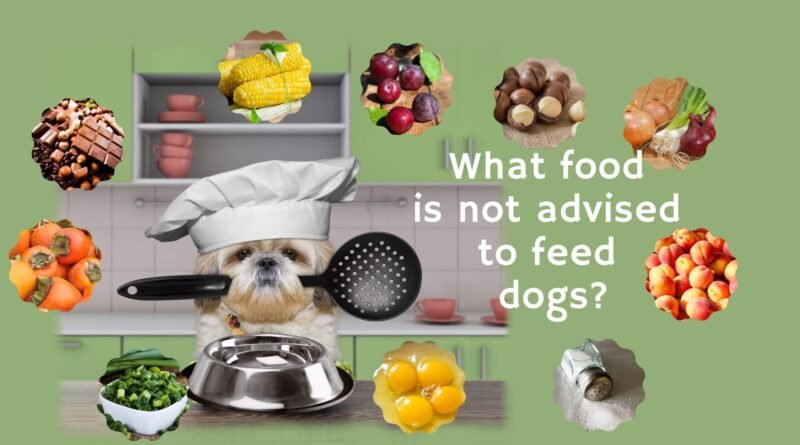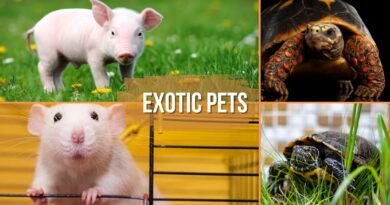What food is not advised to feed dogs?
The dog is man’s best friend. They are always there for us and ready to play or cuddle when we need them. However, they can also be finicky eaters sometimes, and food that might not necessarily harm a human could cause serious health problems in your pup! This article will go over foods you should avoid feeding your dog.
Things that should not be feed to dogs



- Persimmons, peaches, and plumps:
One fruit that can be extremely dangerous to dogs is persimmon. This type of fruit has seeds or pits, which can cause gastrointestinal blockage and even death in a dog. Peach and plum pits also contain cyanide, another ingredient known for its toxicity towards pets as well as humans alike, with consumption typically causing respiratory arrest within an hour’s time frame after ingestion.

- Raw eggs can also be dangerous:
These days, many people are looking for a healthier way to feed their pets. A raw diet is one such idea that has been catching on in recent years – but it comes with some risks as well. Uncooked eggs can be the perfect meal for your dog if they’re not too young or old, and you have them under close supervision so that there’s less chance of food poisoning from bacteria like salmonella or E coli. Talk to your vet before making any changes!

- Adding salt to your puppies diet will cause some severe issues:
Do not share your salty snacks with your dog! Salty foods can lead to sodium ion poisoning, which includes vomiting and diarrhea. It is also likely that they will need more trips to the fire hydrant for a drink of water. Dogs may even experience seizures or death if you give them too much salt in their diet. Salt is equally dangerous to human beings also as it causes some severe problems like an increase in sugar levels and causing thyroid problems etc. Adding salt to your puppy’s diet will also cause some severe itching problems.



- Onions, garlic, and Chives may be toxic:
If you’re a dog owner, then be careful when feeding them onions. Onions are toxic to dogs and can cause gastrointestinal irritation or red blood cell damage within hours of ingestion without any warning signs! You might not see the symptoms right away either – they could happen up to 2 days later. So if you’re a dog owner, please avoid feeding onions, garlic, and chives as they can affect their digestion system instantly or even in the long run also.

- Chocolates:
‘Chocolate is the most dangerous food for dogs.’ That’s what my dad used to say when I was a kid. This seems like common advice, but it turns out that chocolate isn’t just bad for humans-it can also be lethal if ingested by our canine friends!
Theobromine (a stimulant) abounds in dark chocolates and other sweets made with cocoa beans; this chemical causes kidney failure in dogs who eat it because their bodies don’t have an enzyme called CYP1A2, which metabolizes certain chemicals found inside of them.

- Macadamia nuts:
Macadamia nuts, the delectable delicacy often found on top of ice cream sundaes and inside chocolate chip cookies, also contain a toxin that can affect your dog’s muscles and nervous system. Symptoms include weakness, swollen limbs, panting, which may be followed by seizures if not treated quickly.
Macadamia nut toxicity in dogs is something to keep an eye out for when you’re cooking or baking around Fido as it can lead to serious symptoms like muscle tremors (weakness), swelling extremities with labored breathing (panting), all signs typically associated with poisoning from toxins such as strychnine or cyanide but much milder than either one.

- Corn on the cob:
Corn could potentially kill your best friend if given as a snack due to how much damage is done internally when ingested and also because cobs are often hard enough to pose a serious risk, such as blocking up an intestinal tract causing pain for everyone involved while waiting around hours at the vet’s office trying desperately to get things unblocked again.

- Artificial sweeteners:
The sweet treats we crave and the chewing gum that provides an extra burst of flavor are often laced with artificial sugar. If our dogs eat these sweets, they may go into hypoglycemia which can lead to liver failure or a blood clotting disorder.

- Cooked bones:
Dogs love chewing on raw bones. It’s a natural instinct, and it will keep them entertained for hours at a time when they’re not playing outside with their friends or chasing squirrels in the yard. However, there are some important rules to follow if you want your dog to chew safely: uncooked bones can be great but beware that cooked bones could splinter easily and cause constipation -or worse- perforate their gut which is extremely dangerous!
Conclusion
As we’ve seen, there are many reasons why people decide to give up their dogs. Some of these include lack of time for the animal, allergies or asthma in the human family members, and a different lifestyle that doesn’t allow pets. Whatever your reason is, it’s best to understand all sides before making such an important decision about you and your dog. Hope this article will let you choose the right food for your loved pet!




